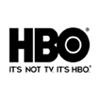
Christopher Slaughter
CEO
|
If you had an opinion about the proposed Comcast/Time Warner Cable deal, you missed your chance to let the FCC know about it, since the deadline for comments was this week. And while there was plenty of negativity expressed in the more than 70-thousand comments, there were also a lot of expressions of support. But as the regulatory approval process continues, Comcast is preparing itself for the deal to take longer than expected to close. |

John Medeiros
Chief Policy Officer
|
The head of India’s TRAI gave an interview defending his agency’s recommendations on Media Ownership. Competition from the Internet? Years away, so for now “newspapers and telecom firms are sitting pretty.” Are cross-media ownership restrictions controversial? Nope: “Everyone, except perhaps the Marans, Subhash Chandra, and the Jains agrees on the need to regulate.” What’s the goal? “In the name of pursuing commerce, some abhorrent practices have come into play (private treaties; paid news)… Freedom of the media… comes with the right of the viewers and readers to unbiased and truthful information.” |

Anjan Mitra
Executive Director, India
|
Some say it was inevitable, while others feel disappointed by the decision of the Indian Government to extend the deadline of the on-going digital rollout of cable TV services to December 2015.Though the government partly blamed previous regime for leaving processes incomplete, there is no denying that this round of the digital battle has gone to the MSOs and LCOs who seemingly lobbied with a new government in New Delhi more effectively than other stakeholders. |

John Medeiros
Chief Policy Officer
|
Here’s a revealing commentary from The Washington Post, noting rising rates of video piracy in the USA, despite easy availability of cheap and legal content options, from Hulu to Netflix to content-company websites. The writer cites claims that the key to solving piracy problems is to make the content available easily, but says that “doesn’t explain… the high rates of piracy in the United States,” where Netflix’s ‘Orange Is the New Black’ (had) nearly 5,000 illegal downloads a day.” Ah, say the torrentfreaks, but Netflix doesn’t have everything. We need a platform that has everything, immediately, right now this minute, on all devices, in Ultra-HD, with bells and whistles… and – cynical me – I will add that only if Netflix offers free burgers and beer with its subscription, maybe the young torrentfreaks will consider abandoning piracy. Until then, don’t hold your breath. |

Michael Steel
Regulatory Assistant
|
Right. Let’s face it, people. In the connected world, piracy isn’t going to be curtailed unless there is some disincentive to downloading free content. Governments need to get active on this front, or consumers of quality content are going to be a lot worse off, and soon. |

Christopher Slaughter
CEO
|
Neither Facebook nor Twitter won any Emmys this week (and there actually is such a thing as a Social TV Emmy), but both platforms enjoyed big boosts during the TV awards show. Social TV is definitely becoming a thing, but it’s fascinating how different the top TV shows are on each social media platform. (We’ll be looking into the Social TV phenomenon more closely during the CASBAA Convention in Hong Kong in just a few weeks time.) |

Godfrey Chan
Member Relations & Marketing Executive
|
Youku Tudou, has announced its new film division. Come and know more about their efforts during the CASBAA Convention where Victor Koo, chairman & CEO of China’s biggest online video company will be a Keynote Speaker. |

Desmond Chung
Associate Director, PR & Communications
|
Jinkies! Who knew that a cartoon about a mumbling, bumbling, crime sleuthing dog would spark such debate over women and body-image issues? In the latest Scooby-Doo movie, the image conscious Daphne is cursed with losing the thing she holds most dear – her perfect figure – and (gasp!) balloons from a size 2 to a… wait for it… SIZE 8! Now I don’t want to say “shallow” but… |

Jane Buckthought
Advertising Consultant
|
The growth of pay television continues, as providers embrace multiscreen services to offer subscribers more viewing options. The Multiscreen Index published by informitv shows a 1.4% increase in digital television subscriber numbers across 100 leading pay-television services around the world in the first quarter of 2014. They collectively gained 4.17 million video customers over three months and 17.43 million year on year, an increase of 5.2%. |

Godfrey Chan
Member Relations & Marketing Executive
|
We fall into thinking OTT TV is really new stuff… but Major League Baseball has a very successful OTT broadcast operation now celebrating its 12-year anniversary! There’s a real committed market for some types of niche content and it penetrates all over the world, as long as the broadband is good enough. (And of course, it helps when the broadcaster owns all the global rights themselves.) And in that vein, here’s the newest OTT “sports” arrival in Asia – WWE. All those Indonesians who missed their “Smackdown” after the authorities there clamped down on it will be able to go online and circumvent the censors. Woooahh! |





















